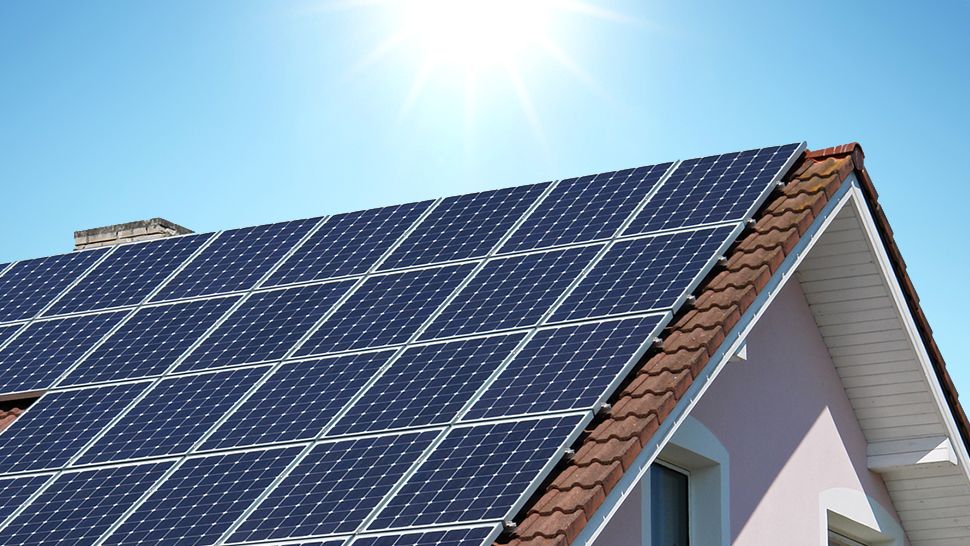
As the world seeks greener and more sustainable energy sources, the adoption of solar panels has seen significant growth. Solar power, harnessed from the sun’s rays, has proven to be an eco-friendly and cost-effective solution for generating electricity. However, for those looking to maximize the benefits of solar energy and ensure a stable power supply even during cloudy days or nighttime, hybrid solar panels have emerged as an attractive option.
Understanding Hybrid Solar Panels
Hybrid solar panels represent a remarkable innovation in the field of renewable energy. Unlike traditional solar panels that solely generate electricity when the sun is shining, hybrid panels introduce a new level of versatility and reliability to solar power systems. These panels are designed to combine the benefits of solar energy generation with the advantages of energy storage through batteries and seamless integration with the electricity grid.
- The Dual Power Generation System
At its core, a hybrid solar panel system operates much like a traditional solar panel system, capturing sunlight and converting it into electricity through photovoltaic cells. Solar panels absorb sunlight, creating a flow of electrons that generates direct current (DC) electricity. This DC electricity is then converted into alternating current (AC) power using an inverter, making it compatible with standard household appliances and the electricity grid.
However, what sets hybrid solar panels apart is their ability to do more than just produce electricity. These panels come equipped with a special inverter and an integrated battery storage system. This battery functions as an energy reservoir, allowing excess electricity generated during the day to be stored for later use. - Maximizing Solar Energy Utilization
One of the key advantages of hybrid solar panels is their capacity to store surplus energy. This stored energy becomes particularly valuable when the sun is not shining, such as during nighttime or on cloudy days. It effectively extends the usability of solar power, making it a dependable source of energy even when the sun is not directly available. - The Role of the Hybrid Inverter
Crucial to the functioning of hybrid solar panels is the hybrid inverter. This specialized inverter serves a dual purpose. First, it efficiently converts the DC electricity generated by the solar panels into AC power, ensuring it is compatible with your household appliances and the grid. Second, it plays a pivotal role in managing the battery system. It charges the battery when surplus electricity is available and controls the discharge of stored energy when needed, such as during power outages.
Advantages and Considerations of Hybrid Solar Panels
Advantages
- Energy Independence|
Hybrid solar panels provide a degree of energy independence. By storing excess electricity generated during the day, you have a backup power source available when needed. This can be particularly beneficial during blackouts or during peak electricity usage hours when costs are higher. - Maximizing Solar Energy
Hybrid panels make the most of solar energy by storing surplus electricity, ensuring that you can continue to power your home even when sunlight is scarce. This can significantly reduce your reliance on conventional grid power. - Environmental Benefits
Using solar power reduces your carbon footprint, contributing to a more sustainable and eco-friendly lifestyle. By capturing and storing energy, hybrid solar panels allow you to further reduce your reliance on fossil fuels.
Considerations
- Initial Investment
Hybrid solar panels, while highly advantageous, do come with a higher initial cost compared to traditional solar panels. This is primarily due to the added expense of the battery and hybrid inverter. - Complex Installation
The installation of hybrid solar panels is more complex than that of traditional panels. They require additional space for the battery system, and the setup process can be more time-consuming. - Limited Battery Capacity
The capacity of the battery within a hybrid solar panel system is not unlimited. While it can store a substantial amount of electricity, excessive usage of electronic devices during nighttime hours may deplete the stored energy quickly. - Cost of Additional Batteries
If you opt not to include a battery system during the initial setup of your hybrid solar panel system, acquiring a compatible battery later can be a significant expense.
In conclusion, hybrid solar panels represent a compelling advancement in solar energy technology. They offer the promise of a more reliable and sustainable energy source by combining solar power generation with efficient energy storage. While they come with certain upfront costs and installation complexities, the benefits of energy independence, extended solar power utilization, and reduced environmental impact make hybrid solar panels a worthy consideration for those looking to embrace clean energy solutions.








